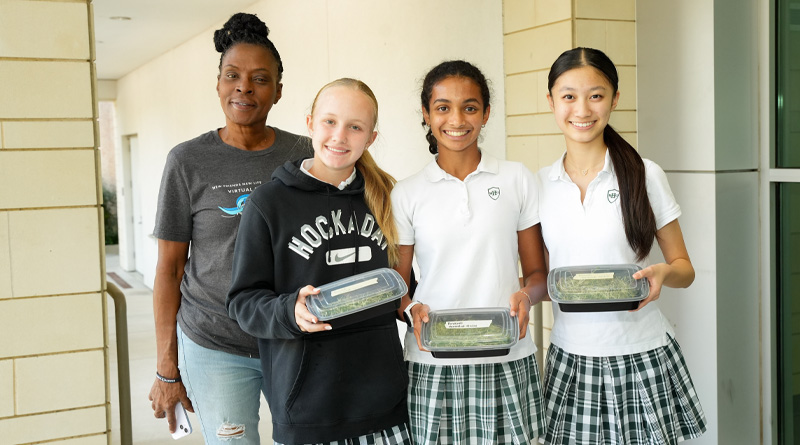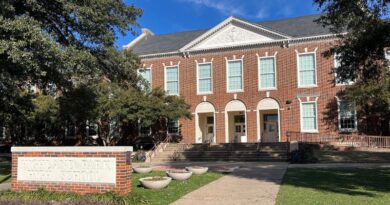The Hockaday School Teaches Science With a Purpose
At The Hockaday School, middle school students combine science and social impact in a special project beginning in the seventh grade.
Students visit the Joppa neighborhood in Dallas and partner with Joppy Momma’s Farm to test soil and water to offer remediation solutions.
The eighth graders grow microgreens in class as part of their investigation of Earth’s biosphere and ecosystems. As students grow the greens, they learn the science of plant growth, practice scientific inquiry skills, and gain a deeper understanding of nutrients in food. Students study the stages of germination, the conditions necessary for germination, how to use various laboratory tools to collect data, how to formulate scientific conclusions based in evidence, and how to evaluate uncertainty in experimental results. Students explore how and why a seed germinates, including why water and exposure to air are important as well as how a germinating seed gets energy before it can get energy from photosynthesis.
Partnering with Hockaday’s Dr. William B. Dean Institute for Social Impact, students then donate the microgreens to Joppy Momma’s Farm, where farmers sell them to restaurants including Cafe Momentum and Asian Mint, owned by Hockaday alumna Nikky Phinyawatana, class of ‘96.
Proceeds from the sale are used to expand the farm, which produces fresh, nutritious foods and makes it more readily available to the neighborhood.
“It’s important for students to understand the connection between what they are learning and the real world,” said director of innovation and collaboration Laura Day. “This partnership does that and creates a social impact.”
Science Department chair Peggy Cagle sees the project fitting seamlessly within the curriculum.
“By growing microgreens for Joppy Momma’s Farm, the students are doing science with a purpose,” Cagle said. “Not only do they learn about the science of plant growth and practice inquiry skills, but they also see how their learning can have a positive impact. Our students also love watching the microgreens grow, then tend to them meticulously, and they are excited about the opportunity to visit local restaurants and taste their own products.”









